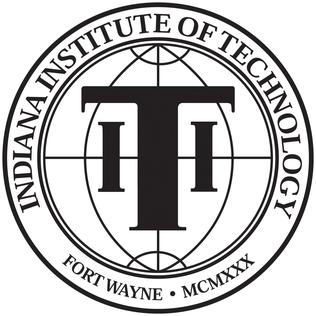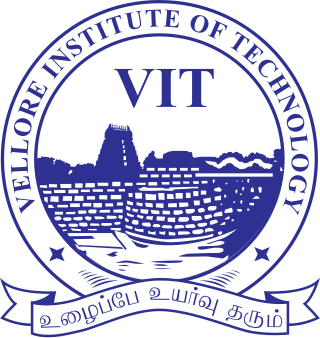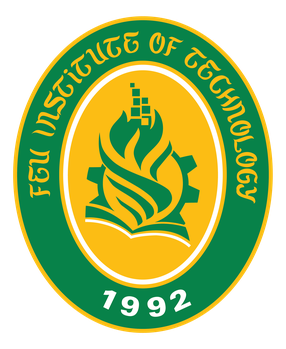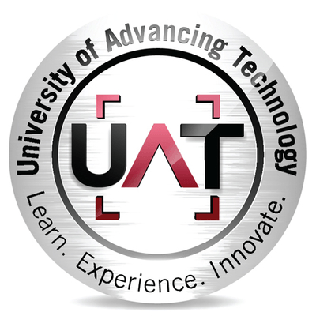
Vaughn College of Aeronautics and Technology is a private college in East Elmhurst, New York, specialized in aviation and engineering education. It is adjacent to LaGuardia Airport but was founded in Newark, New Jersey in 1932 before moving to New York City in 1940. The college's most recent name change, to honor a founder, was on September 1, 2004.

DigiPen Institute of Technology is a private for-profit university in Redmond, Washington. It also has campuses in Singapore and Bilbao, Spain. DigiPen offers bachelor's and master's degree programs. It also offers summer programs for students in grades K-12, online courses, and year-long high school programs.

Indiana Institute of Technology is a private university in Fort Wayne, Indiana. It was founded in 1930 as Indiana Technical College by John A. Kalbfleisch, who was also the school's first president.

Umm al-Qura University is a public university in Mecca, Saudi Arabia. The university was established as the College of Sharia in 1949 during the reign of King Abdulaziz ibn Saud before being joined by new colleges and renamed as Umm al-Qura through a royal decree in 1981.

Vellore Institute of Technology (VIT) is a private research deemed university located in Katpadi in Vellore, Tamil Nadu, India.

Mapúa University, also known simply as Mapúa or MU, is a private research-oriented non-sectarian university located in Metro Manila, Philippines. The university was founded in 1925 by the first registered Filipino architect, Tomás Mapúa, a graduate of Cornell University in New York, US. In 2000, the university was acquired by the Yuchengco Group of Companies.

FEU Institute of Technology, also referred to as FEU Tech, is a private, non-sectarian, coeducational higher education institution in Sampaloc, Manila, Philippines. It offers courses in the fields of Engineering and Computer Studies. Established in 1992 as East Asia Computer Center, Inc.(EACCI), an educational partnership of Asia Pacific Computer Technology Center, Intelligent Wave Inc., and Far Eastern University.

University of Advancing Technology (UAT) is a private for-profit university in Tempe, Arizona. Founded in 1983, UAT integrates technology into its general education requirements. The institution offers core classes, as well as deep sets of courses in each major. Each student is required to complete a "Student Innovation Project" and internship to graduate.
Prince Mohammad bin Fahd University, abbreviated PMU, is a private non-profit university in Al-Khobar, Saudi Arabia. It was founded by Prince Mohammad bin Fahd, former governor of the Eastern Province.

Colorado Technical University (CTU) is a private for-profit university with its main campus in Colorado Springs, Colorado. Founded in 1965, CTU offers undergraduate, graduate, and doctoral degrees, primarily in business, management, and technology. About 92% of Colorado Tech's students are fully online. According to Colorado Tech, the university has conferred more than 118,000 degrees worldwide. Colorado Tech has no public or official affiliation with the State of Colorado and it is owned by the for-profit company Perdoceo Education Corporation, publicly traded on the NASDAQ under PRDO and formerly known as Career Education Corporation (CEC).

The Technological Institute of the Philippines is one of the country’s engineering colleges that also offers programs in computing, architecture, business, education, and the arts. The school is located in Metro Manila, Philippines. It is a private non-sectarian stock school founded on February 8, 1962, by a group of educators headed by Demetrio A. Quirino, Jr. and Teresita U. Quirino.
University of Arkansas Grantham is a public online university based in Little Rock, Arkansas. Founded in 1951 as Grantham Radio License School, it would eventually be renamed Grantham University. The then-for-profit school offered distance-education programs from 1951 until 2021, at which point it was entirely online. Grantham was purchased by the University of Arkansas System for one dollar in 2021, merging with the latter’s eVersity online program. It is composed of four colleges: the College of Business, Management, and Economics; the College of Humanities and Social Sciences; the College of Science, Engineering, and Technology; and the College of Nursing and Health Professions. It is accredited by the Distance Education Accrediting Commission.
Walsh College is a private college in Troy, Michigan. Founded in 1922 by Mervyn B. Walsh, an accountant with the Thomas Edison Light Company, Walsh College is an upper division undergraduate and graduate institution that provides a transformative business and technology education that combines theory, application, and professional experience to prepare graduates for successful careers.
A Bachelor of Science in Information Technology,, is a bachelor's degree awarded for an undergraduate program in the information technology. The degree is normally required in order to work in the Information technology industry.
The Lyceum of the Philippines University–Batangas is a higher education institution located in Capitol Site, Batangas City. It was founded by Dr. Sotero H. Laurel in 1966 using the educational philosophy of his father, former President José P. Laurel. Serving as the Lyceum of the Philippines University's affiliate satellite campus in the province of Batangas, its flagship courses were Nursing, Medical Technology, Marine Engineering, and Customs Administration. Now, Lyceum of the Philippines University has 42 degree & non-degree programs offerings. The school employs over 500 teaching and non-teaching personnel to cater to the needs of its 10,000 student population, the biggest amongst all Lyceum campuses.

The American University in the Emirates (AUE) is a private university in Dubai International Academic City in the United Arab Emirates. The university was founded in 2006.

National University is a private university headquartered in San Diego, California, United States. Founded in 1971, National University offers academic degree programs at campuses throughout California, a satellite campus in Nevada, and various programs online. Programs at National University are designed for adult learners. On-campus classes are typically blended learning courses, concentrated to four weeks or on weeknights with occasional Saturday classes. The university uses asynchronous learning and real-time virtual classrooms for its online programs.

The American University of the Middle East (AUM) is a private university established in 2007 in Kuwait.

The Fred DeMatteis School of Engineering and Applied Science (SEAS) is the engineering school of Hofstra University, a private university in Hempstead, New York. It was created in 2012 out of the previously existing Departments of Engineering and Computer Science. It is accredited by ABET.














